The Minisink Valley Diversity Committee
The Minisink Valley Diversity Committee was established by the Board of Education and Administration in 2018 and is tasked with the responsibility of ensuring accountability in our schools with respect to the fair and inclusive treatment of all students.
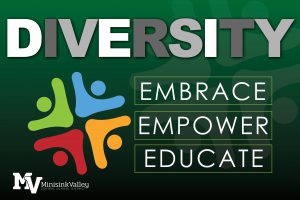
Our work is aligned with one of the Board’s important goals:
The district will continue to promote an atmosphere valuing Minisink Valley’s diversity, which supports a learning environment respectful of all students, staff and community members and maximizes each student’s academic achievement and success. The district has no tolerance to all acts of racism, discrimination, hateful actions and speech.
Our commitment to our diversity initiatives is further represented in communications throughout our buildings for our Spanish and Mandarin Chinese native language speaking students.
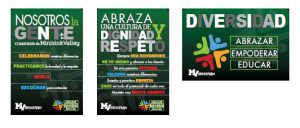
Our Belief Statement
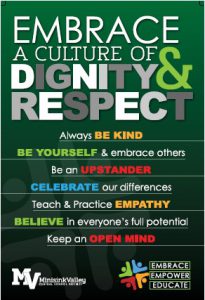 Embrace a culture of respect and dignity.
Embrace a culture of respect and dignity.
- Always be kind.
- Be yourself and embrace others.
- Be an upstander.
- Celebrate our differences.
Teach and practice empathy. - Believe in everyone’s full potential.
- Keep an open mind.
Always.
Background
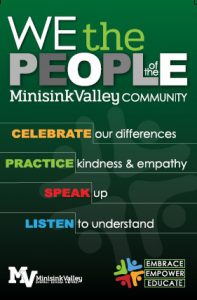 In January 2018, the New York State Board of Regents directed the Office of P-12 Education and Higher Education to convene a panel of experts, engage with stakeholders, and develop a framework for culturally responsive-sustaining education.
In January 2018, the New York State Board of Regents directed the Office of P-12 Education and Higher Education to convene a panel of experts, engage with stakeholders, and develop a framework for culturally responsive-sustaining education.
In 2019, a guidance document was drafted and presented to educators in based on this work. At this time, this document it is not yet a regulation. The guidance document stated that in order for a district to be considered a school system that is culturally responsive, it must create:
- Students who experience academic success
- Students who are socio-politically conscious and socio-culturally responsive
- Students who have a critical lens through which they challenge inequitable systems of access, power, and privilege.
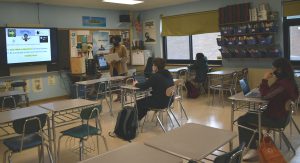
Culturally responsive-sustaining (CR-S) education is grounded in a cultural view of learning and human development in which multiple expressions of diversity (e.g., race, social class, gender, language, nationality, religion, ability) are recognized and regarded as assets for teaching and learning.

The four principles that must be present to consider oneself a culturally responsive school district are:
- A welcoming and affirming environment
- High expectations and rigorous instruction
- Inclusive curriculum and assessment
- Ongoing professional learning


 Michael Giardina
Michael Giardina